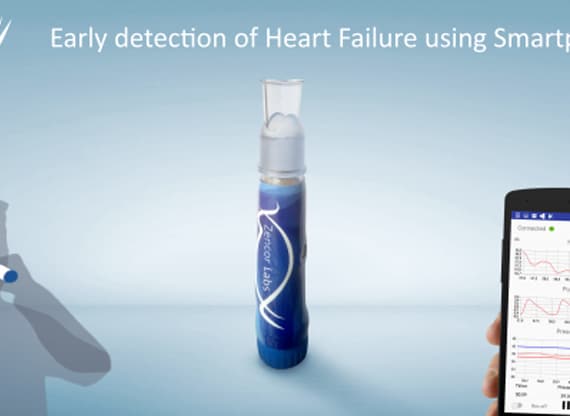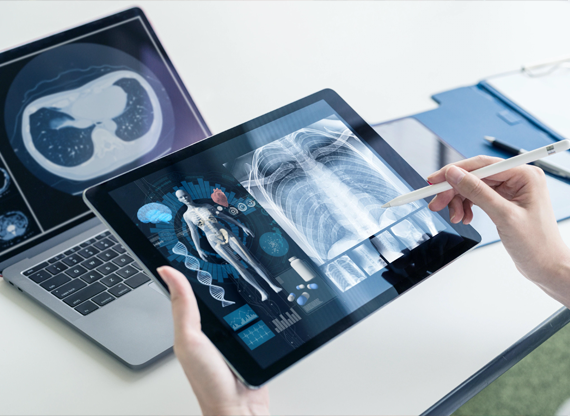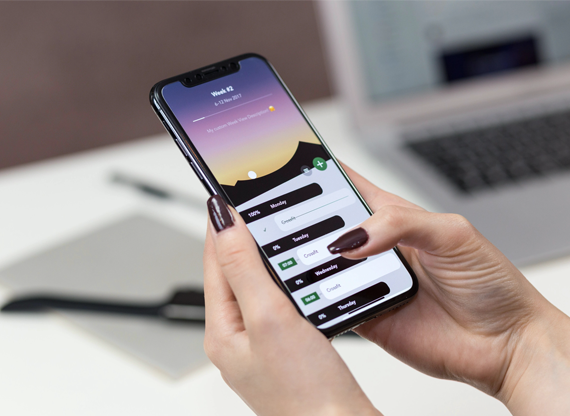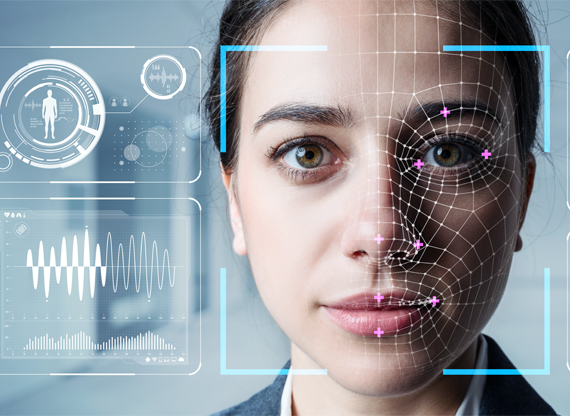
February 14th 2019
Dark Side Of The Heart
On this day of romance and love, we at Bayer G4A are celebrating heart health. Whether yours flutters with romance or thumps with the thrill of flirtation, your heart is deserves the extra TLC.
If your vascular walls could talk they might expose larger truths, such as whether you’ve been exercising or if you over indulge in red meats. Lifestyle factors like diet, exercise, and smoking habits, can be the difference between heart health and heart failure. While this isn’t always the case - genetic conditions also share the burden of cause - the best way to take care of your ticker is to make healthier choices. One out of every four Americans will experience a cardiac episode in their lifetimes, which makes heart disease the number one cause of death in the United States (CDC). Being number one comes with a responsibility to bare, one that physicians, health systems, and even technology giants are eager to alleviate.
Electrocardiograms were in invented in 1903 and were once as big as dining room tables. Today that technology can fit on your wrist. Surgery as a solution came about in the 1960s, and today is as minimally invasive as it's ever been. Every corner of the heart can be clocked and measured so now, rather than react to a symptom, patients and physicians alike are engaged in a care experience that emphasizes prediction and prevention.
Once strictly reserved for clinical settings, stethoscopes, ECGs, and even face time with your doctor are now finding their into the mainstream. Telehealth services are gaining traction, which when paired with remote patient monitoring, has created an ecosystem in which patients can go about their daily lives while simultaneously tracking every step, calorie, and heartbeat. The data that these products and environments produce not only flow freely from the individual to the clinician and back again, but also paint a comprehensive picture of health. For heart health in particular when symptoms can go long undetected, this information provides critical insights to mitigate the risk of a serious attack.
From startups to tech giants, the suite of medical grade products designed specifically for consumer use is growing. Zencorlabs, for example, leverages the flash on your smartphone camera alongside their Zencor-Manometer to measure risk of hypertension and atrial fibrillation. A 2018 report from the eHealth Initiative and Validic states that hospitals are finding more value in patient generated health data than they are from data collected in the clinical setting. This could contribute to why clinicians are likewise adopting such technology.
On a larger scale, Apple has made their emphatic debut into the world of health care with a focus on heart health. Their early success can be attributed to the ubiquity of Apple products overall, and with their Heart Study, Apple hopes to detect atrial fibrillation early on and thus reduce the number of cardiac related deaths annually.
We at Bayer G4A see a future in which multimodal connected platforms are the standard of care; where heart disease drops off the number one list; where we live longer and stronger. This Valentine’s Day, we hope you’ll choose to celebrate your own heart.






